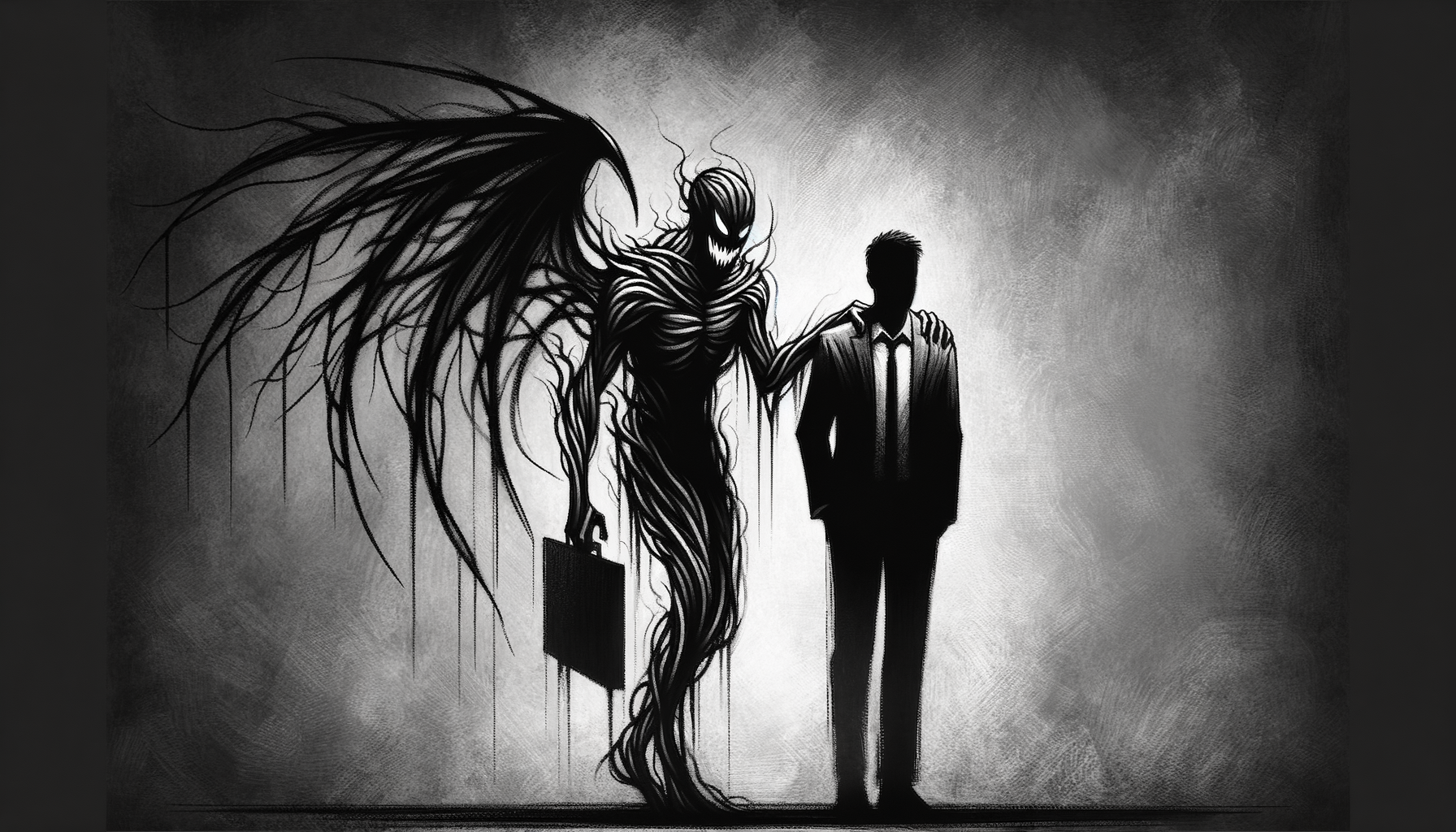Why Fear is Just Another Bad First Date
We all have that one thing that keeps us up at night. For some, it’s the thought of public speaking. For others, it’s spiders (shout out to the people keeping the broom industry alive). For me, it was something far less tangible but equally terrifying—disappointment. And not the “finding out they canceled your favorite show on Netflix” kind of disappointment. I’m talking about the paralyzing fear of letting people down, of overpromising and under-delivering, of failing despite my best intentions.
It sounds dramatic, sure, but hear me out: disappointment is sneaky. It quietly lurks in your psyche, whispering, “What if you’re not enough?” The irony, of course, was that in my efforts to avoid disappointing others, I ended up freezing. I didn’t try, I didn’t chase, I didn’t leap. I played it safe, always hovering just shy of potential. Because as long as you don’t cross the starting line, there's no finish line to lose, right?
But staying still doesn’t make life easier—it just becomes another reason to feel stuck. And let me tell you, I was tired of being stuck. So, I decided to face my fear head-on. Spoiler alert: I survived, and so will you.
The Icebreaker: A Terrible Presentation
Let me set the stage: It was my final year in college, and I had to give a 30-minute presentation in my African American Studies seminar. The topic? Cultural reclamation in postcolonial literature. Sounds fascinating, right? It was. Too bad I was so scared of letting my professor (and myself) down that I procrastinated for weeks. The result? A slideshow that featured Comic Sans—that’s right, Comic Sans—and a title slide that may or may not have included the words “Thingz Happening After Colonialism.”
About ten minutes into my fumbling presentation, I dropped the note cards I wasn’t even reading from. A classmate, bless her soul, leaned over and whispered, “You’re doing fine.” It was the kind of encouragement you give someone before they bomb a karaoke rendition of Whitney Houston. Fine? I was barely finishing sentences. I launched another shaky point about cultural identity, when I looked out at the audience. Turns out, no one was throwing tomatoes. No one even looked that bored. Some folks even nodded. And suddenly, I realized: the people I was afraid of disappointing didn’t share my fear, because they didn’t expect my perfection. They just wanted my presence.
Step 1: Feel the Fear, Anyway
The first step in conquering fear is accepting its presence. Fear won’t go away just because you try to outsmart or ignore it. It’s like your aunt who shows up at every family reunion uninvited—you just have to acknowledge her and set some boundaries.
Here’s the cheat code: instead of asking yourself “What if I fail?” try reframing the question as “What’s the worst that could happen if I fail?” Nine times out of ten, the answer is less scary than whatever doom scenario your mind conjured up. In the case of that presentation, the worst thing to happen was literal Comic Sans—small potatoes in the grand scheme of things.
Step 2: Practice Failing in Public
Getting comfortable with disappointment isn’t something that happens overnight. Trust me, I tried. That’s why you’ve got to treat it like flexing a muscle: repeated reps at tolerating discomfort.
For me, this meant purposefully taking on things I thought I’d suck at. Volunteering to lead a team in grad school? Check. Signing up for swing dance classes when my dancing ability topped out at wedding receptions? Yup. Hosting a writing workshop for kids in my community when I had major impostor syndrome? Absolutely terrifying—also a huge triumph.
Here’s what I learned: most people aren’t rooting for your failure, they’re just trying to cheer you on. And if they’re not, those are not people you need to carry on your team anyway.
Step 3: Speak Your Doubts Out Loud
Sometimes, bravery starts with admitting you’re afraid in the first place. This was the hardest part for me—after all, it’s easier to hide fear under jokes, success, or sheer avoidance. But the truth is, vulnerability makes you human, and humanity makes you relatable.
Case in point: When I started dating my now-partner, I was terrified to say anything personal. What if I said something dumb? Or worse, what if I said something real and they didn’t like me anymore? Spoiler alert: I eventually worked up the nerve to tell them I’m sometimes terrified of… pigeons. And instead of judging me, they laughed, shared their own ridiculous fears, and ordered another round of fries.
Relationships, whether romantic or platonic, aren’t about presenting the “perfect” version of yourself—they’re about connection. And connection requires a little risk.
Step 4: Change Your Perspective
Now, when I feel the twinge of disappointment creeping in, I stop and ask myself this: What’s the bigger goal? Sometimes, we get so focused on not going off-script that we forget what we’re trying to accomplish in the grand scheme of things.
Think of it like jazz (it’s impossible for me not to, growing up in Chicago): the beauty of the music doesn’t come from everyone playing perfectly—it’s in the improvisation. It’s in trusting yourself to hit whatever note feels right and knowing you can recover if you don’t.
Finding Freedom in Imperfection
The truth is, I still feel fear sometimes. It’s there in the pit of my stomach before I submit a story or step into a room where I don’t know anyone. The difference now is, I don’t let fear drive me. I let it sit shotgun, because I know it doesn’t determine where I’m headed.
If fear is like a bad first date—awkward and overwhelming—it helps to remember that it won’t be the last one. You’ll laugh about it later, and if you can lean into it, it might just show you what you’re made of.
At the end of the day, disappointment is inevitable. What matters is how you handle it: with a little humor, a lot of grace, and the knowledge that the people who care about you aren’t going anywhere. Don’t rob yourself of moments that could surprise you just because you’re afraid they won’t be perfect. Because life isn’t a perfect slideshow—it’s a jazz solo. Play it your way.




















